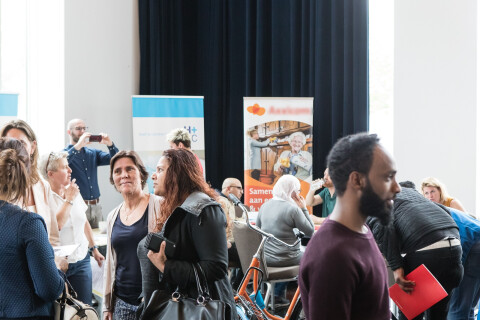
December 9th 2022
The market position of refugees: legislation and regulations
What laws and regulations are there in the Netherlands that relate to the labor market position of refugees? In this article we provide a brief overview.
Please note: this article was translated using a translator appParticipation Act
Most status holders without work receive social assistance benefits and therefore fall under the Participation Act(1). This means that they must make a demonstrable effort to find work and must accept a suitable offer of work. The Participation Act delegates the responsibility for supporting status holders in finding work to the municipalities.
Integration Act 2.0
Most status holders, with the exception of children and pensioners, and depending on their nationality, are obliged to integrate. If a status holder comes from another part of the world, there is a good chance that they will have to integrate, learn the language and get to know Dutch society. That is why status holders must pass the integration exam or Dutch state exam. The aim of this is economic independence.
Bottlenecks in finding and keeping work
At the beginning of 2022, a new Integration Act came into effect that applies to new asylum applications. This law takes into account various bottlenecks when finding and keeping work. For example, the Social and Cultural Planning Office concludes that a Dutch diploma and education in the Netherlands have a positive effect on the labor market position. A short care period and active daytime activities during the care period also have a positive influence on labor market opportunities.
In accordance with the new Integration Act, the municipality and status holder jointly determine which of the following three processes is most suitable:
The B1 route: this combines (volunteer) work and language. Within three years, the immigrants learn to speak and write Dutch by combining language lessons and (volunteer) work.
The education route: this is aimed at status holders who learn Dutch and are prepared for an intermediate vocational education, higher professional education or university education.
The self-reliance route (Z-route): this is for people for whom the other two routes are not feasible. Refugees learn basic Dutch and are prepared to easily participate in society.
Integrate and work
An important innovation is that status holders are allowed to enter the labor market during integration. This means that employers can immediately offer them a job. Collaboration between employers with social organizations and/or municipalities can provide an impetus to the realization of more apprenticeship programs, work experience placements and trial placements.
Municipal regulations
To accommodate employers when hiring status holders, municipalities often offer threshold-reducing schemes. The Employer Service Point has more information about the regulations that apply in your municipality.
Work while retaining benefits
One of the options is a trial placement or work internship. A trial placement can last up to a year, but in many municipalities it takes three to six months. During the trial placement or work placement, the employer does not pay any wages and the refugee retains his/her benefits.
Temporary wage cost subsidy
The wage cost subsidy includes a fixed amount that is linked to the refugee's wage value for any additional language support, guidance and/or lower labor productivity. The municipality of Amsterdam, for example, pays this out to employers who hire status holders with social assistance benefits and who still need some training or extra guidance.
Incentive premium
An incentive premium is a temporary compensation for the fact that the employer has to pay a status holder the statutory minimum wage without being able to fully employ the person. The municipality of Zwolle, among others, provides this compensation in the form of a hiring subsidy.
Compensation for additional costs
Municipalities can also offer compensation for the expenses that an employer incurs for, for example, guidance, training or adjustments to the workplace.
(1) Unemployed status holders whose partners have work do not receive social assistance benefits; they fall under the group of 'non-benefit recipients' (nuggers). For more information: On the way to work? Female status holders and municipalities about opportunities and obstacles in access to employment , Knowledge Platform Inclusief Samenleven, 2019.
(2) In progress. An analysis of the policy aimed at status holders and what is needed to improve this policy , SCP, 2021.
(3) See Werkgeversservicepunt.nl for an overview per labor region. WerkgeversServicepunt.nl is an initiative of the Regional Labor Market Program Council .
This text is an adapted version of part of the second chapter of the practical guide “Status holders and work”.
Also read: Status holders and work: the knife cuts both ways
Also read: Status holders on the labor market